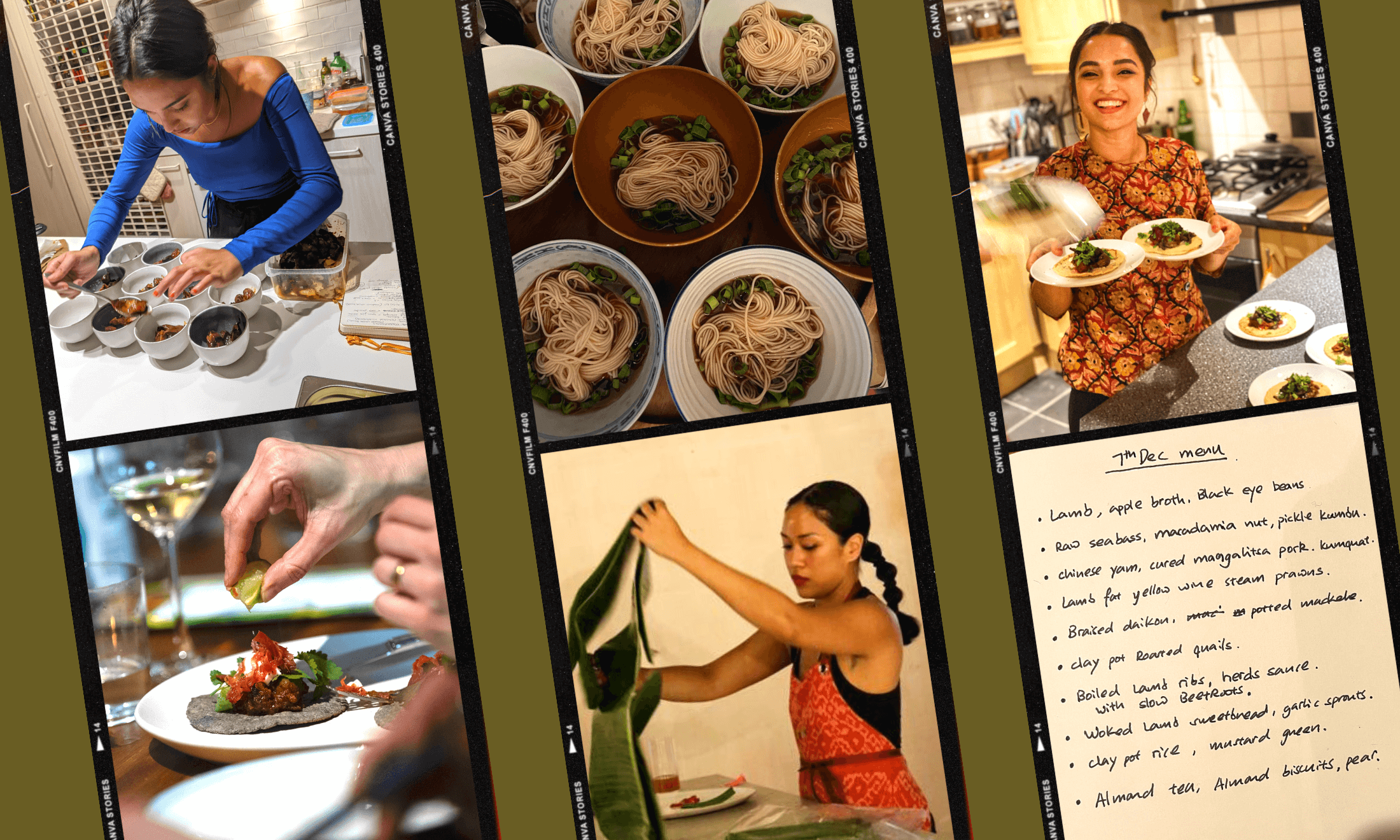Marginalised communities have historically formed their own spaces of rebellion, innovation and community, from the speakeasies during the Harlem Renaissance where African American jazz flourished, to paladares in Cuba, to Britain’s Half-Hundred Club, founded in 1937 by socialists as a “poor man’s food and wine society”. In 2023, with restaurants facing closures due to surging inflation, labour shortages as a result of restrictive immigration policies and the cost of living crisis, supper clubs are providing another way to experience cuisines that have been misrepresented, cooked by the chefs that know them best.
“Cosy, exciting, and off-the-map – supper clubs offer a different way of dining out”
With the intimacy and flexibility of supper clubs, we can cultivate new relationships through a shared plate. Cosy, exciting, and off-the-map – supper clubs offer a different way of dining out, bringing strangers together to the same table through their shared appetite for a chef’s imaginative plates or a love of a diasporic cuisine. Also known as pop-ups or underground restaurants, they are essentially a hybrid between a dinner party and a restaurant, often held in the intimacy of a chef’s home or other temporary venues. Supper clubs act as a space of cultural exchange, closing the distance between a chef and their guests as everyone sits together at dinner, and can learn how a cook expresses their identity and culture through flavours. These spaces enable chefs from underrepresented communities to reclaim their culinary narratives and traditions with autonomy, countering mainstream restrictions which often reduce and homogenise their cuisines.
gal-dem has curated a list of 12 different supper clubs around the UK to look out for in 2023.
NewGate Studio, London
Over the last few years, Coco Kwok of NewGate Studio has run her supper club from the intimacy of her home, combining her Guangzhou heritage with her influences in London. “Because I didn’t have professional training, finding work in a kitchen wasn’t easy. Instead, supper clubs were my way to road-test new dishes,” Coco says. Brave and experimental in her flavours, Coco’s brand of cooking exudes her natural intuition, curiosity and care. With dishes that are beautiful yet unfussy, Coco seamlessly balances unexpected flavours that can only be described as Ratatouille-esque – returning you to the warmth of childhood while setting off taste-explosions in vibrant colours. Combining seasonal British produce with Cantonese cooking techniques, Coco says creating her menus is “a bit like writing my diary”. A simple claypot rice is punctuated with the rich earthiness of porcini mushrooms, while tender pigeon breast tickles your taste buds with the sweet burst of grapes.
Next date: TBC
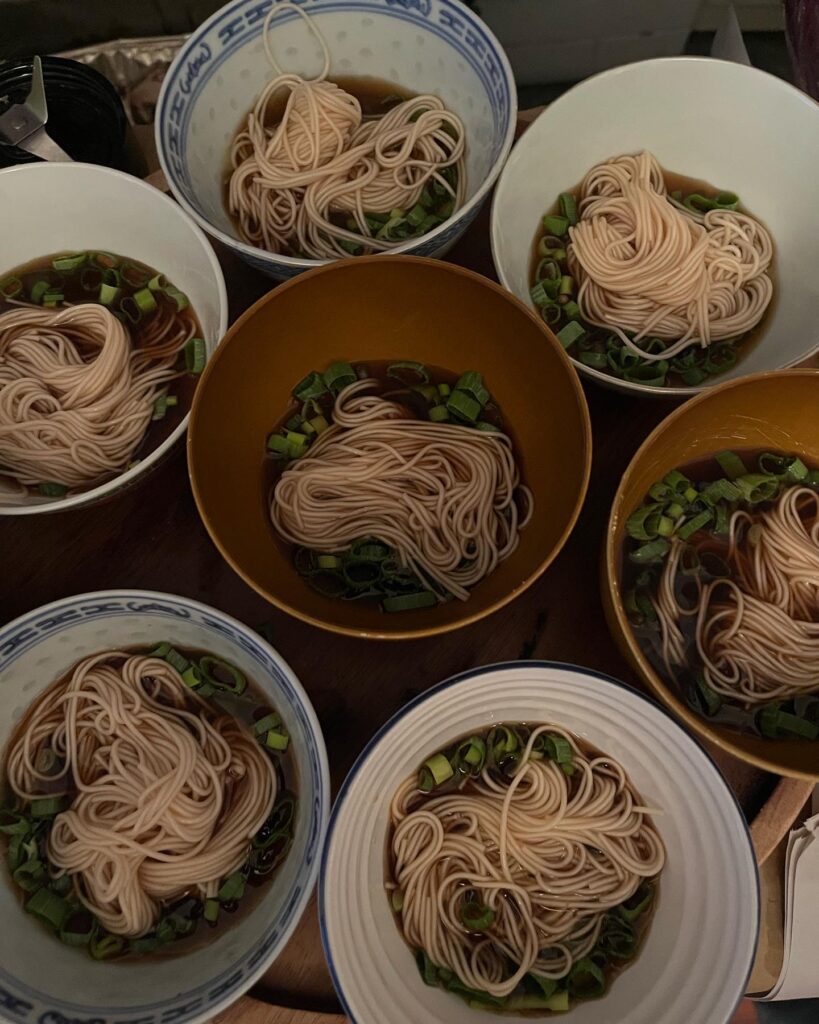
The Little Sri Lankan, Manchester
What first started as a pandemic food catering and delivery service of rice and curry packs around Stockport and Manchester grew into a supper club in March 2022. Partners Malanie and Michael wanted to foster a greater understanding of Sri Lankan cuisine in the UK by sharing family recipes. Although they both worked in professional kitchens for over 20 years, they were taught how to cook Sri Lankan food by Malanie’s mother and her recipes which have been passed down her family for generations. Continuing the legacy, Malanie introduces each course to their guests with an anecdote detailing the history of the dish and the food memories of her family.
Next date: 25 Jan
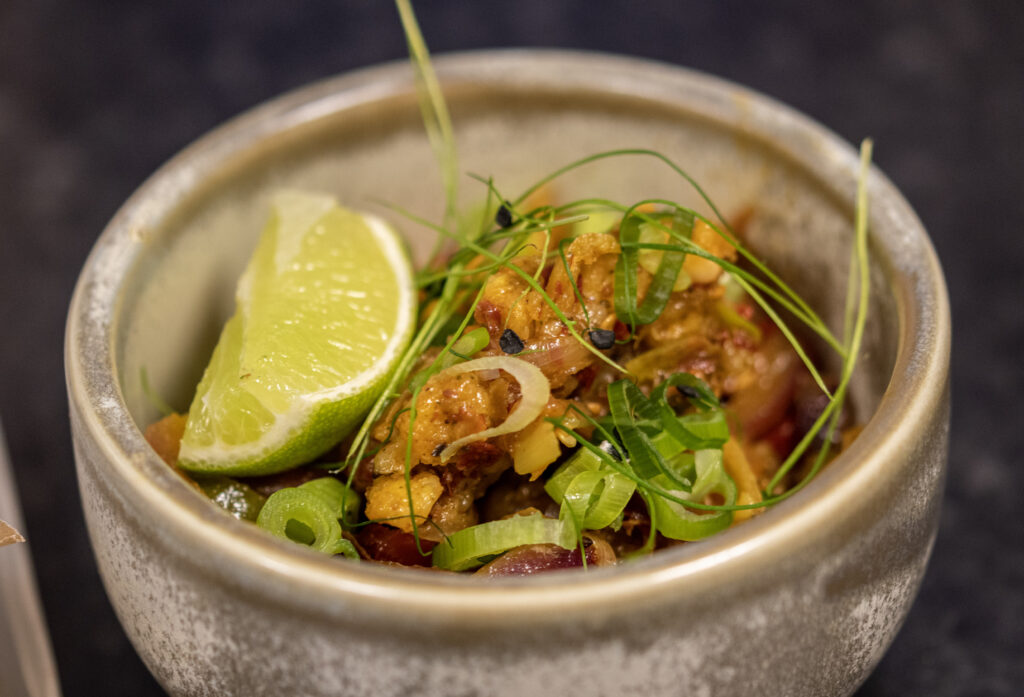
Myristica, London
Myristica is a genus of tree that produces nutmeg, a spice that’s native to the island of Grenada in the Caribbean, also known as the ‘Island of Spice’ due to its abundant production. The supper club, started by Michelle Trusselle, a semi-finalist on BBC’s MasterChef: The Professionals 2018, is rooted in the flavours of Grenada to celebrate her heritage. With a five-course tasting menu and a Prosecco cocktail to ease you in, Trusselle’s supper club is reimagining Caribbean fine dining – offering playful new iterations of traditional dishes while staying true to the core flavours. You can expect an airy nutmeg brioche with a dusting of rum salt to begin and a jerk chicken infused with staccato bursts of mint and scotch bonnet.
Subscribe on their website for upcoming supper clubs
Afsaneh’s Kitchen, Leeds
Afsaneh Kaviani, a Masterchef 2012 contestant and well-known chef in Leeds, hosts Persian supper clubs in her Leeds home. Her main goal is to introduce guests to Persian food the way it’s eaten at home and to try as many different dishes as possible. This consists of a mix of mezzes, slow-cooked meat stews, roasted lamb and tahdig rice dishes where herbs such as dill, coriander, and tamarind take centre stage, while the rice itself is prepared with oil and salt to form a crust on the bottom. As the guests tuck in, Afsaneh brings out the pans she’s used to cook the rice and explains the Iranian tradition of sharing the crispy rice crust from the pan. With five days of prep for each supper club, Afsaneh is treating you to a real banquet.
Next date: 11 Feb
Eat With Spoons, London
When Rahel Stephanie moved to the UK from Indonesia almost ten years ago, she longed for the flavours of home. She started cooking dishes of her childhood to remedy her homesickness, learning the tricks of the trade from YouTube Indonesian aunties and scouring Asian and African markets for spices. What started as a hobby and dinner parties for friends grew into a vegan supper club in 2019 and is now one of the most exciting dining experiences in London. Inspired by the breadth of regional dishes from Indonesia, Rahel’s supper club celebrates the people who helped build the culture – from the warteg (street food joint) shopkeepers to the housewives passing on their family recipes. Frustrated with the appropriation and distortion of Indonesian food by the west, Rahel is countering it with her own story, and her own home-grown ingredients. With each of her suppers, Rahel is celebrating the sheer abundance of Indonesian cuisine – a country with over 17,000 islands and 300 ethnicities. Be sure to book quickly as Rahel’s supper clubs are known to sell-out within minutes!
Next date: 27 Jan
Little Baobab, London
“Senegal is known as Teraanga in the local dialect Wolof, and the word surmises the warmth, generosity, and sharing that is core to Senegalese customs,” says Khadim Mbamba, the owner and chef of Little Baobab, a monthly Senegalese supper club in London. Through Little Baobab, Khadim wants to showcase not only the vibrant cuisine, but also the Senegalese spirit through live music. With a menu consisting of Senegalese classics including chicken yassa, mafe and thieboudienne, Khadim hopes to embody the warmth and heartiness of the Senegalese food he grew up with. “I want you to come here and feel comfortable like you’re in the living room with your best friend,” says Khadim.
Next date: second Friday of every month at Palm 2
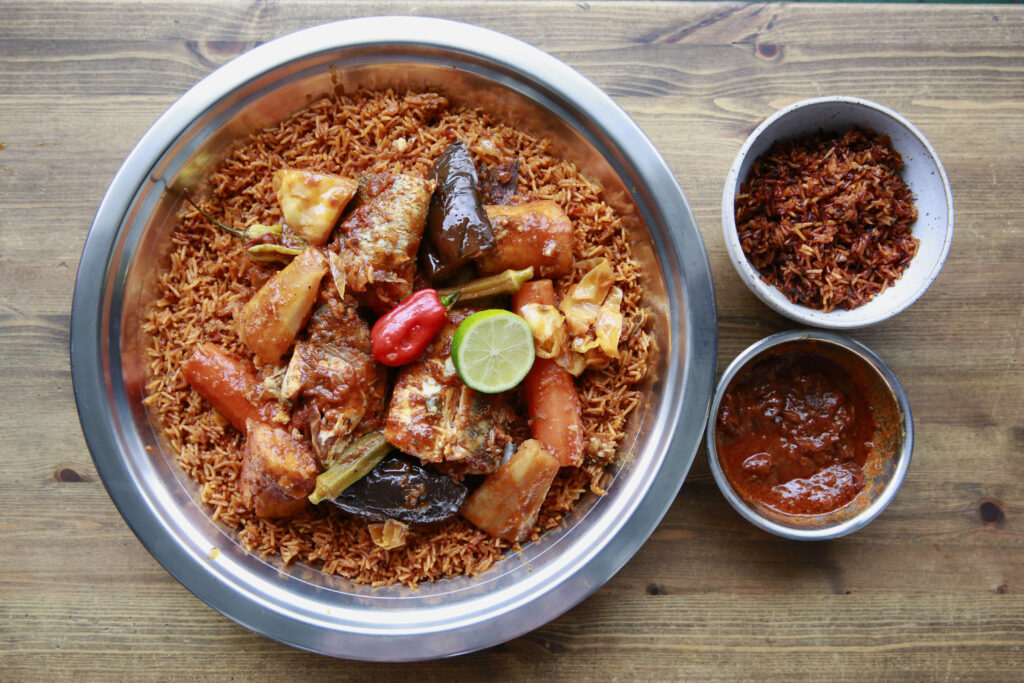
Marhabtayn, London
Marhabtayn is the Arabic word for “two welcomes” as traditionally in Syria, people greet each other with a double welcome. The supper club is an extension of traditional Syrian hospitality, sharing the cuisine and culture with guests to raise funds in support of displaced Syrians in Syria and neighbouring countries. Last summer, they collaborated with Sudanese Kitchen to host a shared supper club in support of the Sudanese refugees who recently arrived in the UK and are now facing the hostile environment. Through food and live music shared together with almost 40 guests, the supper club is a night to learn about Syrian culture by eating and dancing together.
Next date: TBC
Eastern Platters, London
Designed to be communal, everything at the Malaysian supper club is served on sharing platters. Previous supper clubs were hosted at the Hackney Chinese Community Services, where the majority of proceeds goes toward providing resources and support for East and South East Asian communities. Alice, the chef and DJ, fills the menu with an array of home-style and hawker dishes that she grew up with, while soundtracking the night with her collection of South East Asian records. Alice hopes to share her memories from growing up in a musical family with Malaysian food traditions. She sources high-quality ingredients – seasonal British-grown vegetables where possible, meat and eggs from high-welfare farms and seafood from sustainable fisheries.
Next date: TBC
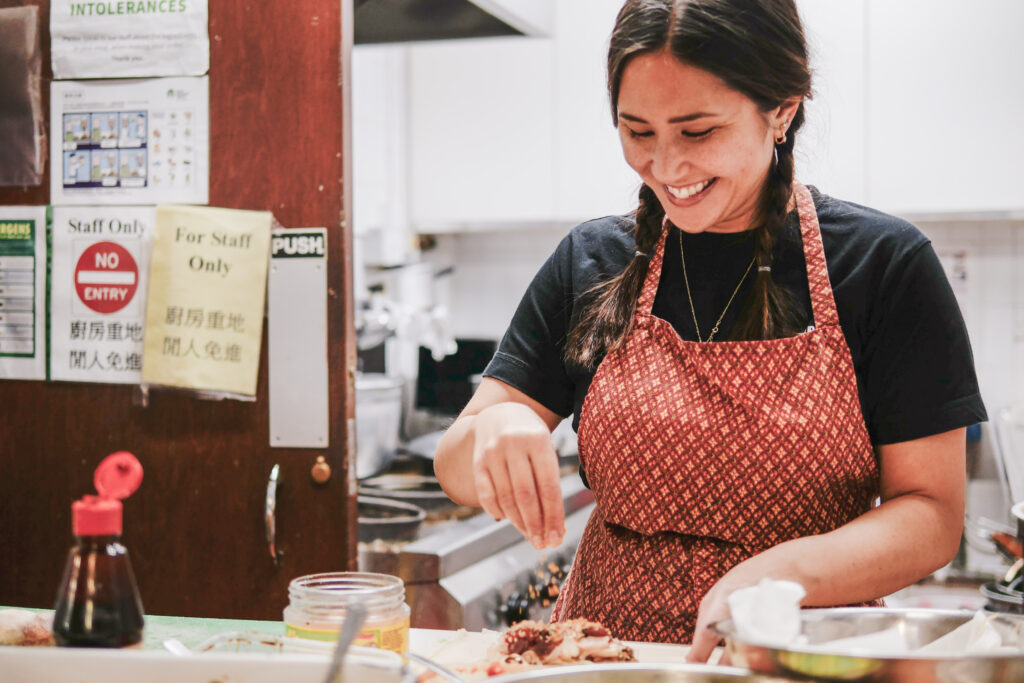
Smoke and Lime, London
Sohini Banerjee loves to feed and nourish those around her and to create meals that “evoke the feeling of home, wherever that may be”, she says. Raised in Kolkata, India, she moved to the UK as a teenager. Through her vegetarian Bengali-inspired eight-course supper clubs, she hopes to share the story of her family’s immigration and all the traditional techniques she inherited from her grandmother and learned from the street vendors in Kolkata and her new experiences in London. With a no-waste ethos, Sohini cooks with all parts of the vegetable – re-purposing the peels and seeds to create new condiments and garnishes. “My grandma never had a bin in the kitchen so we would use everything,” she explains.
Next date: 18 and 19 Jan
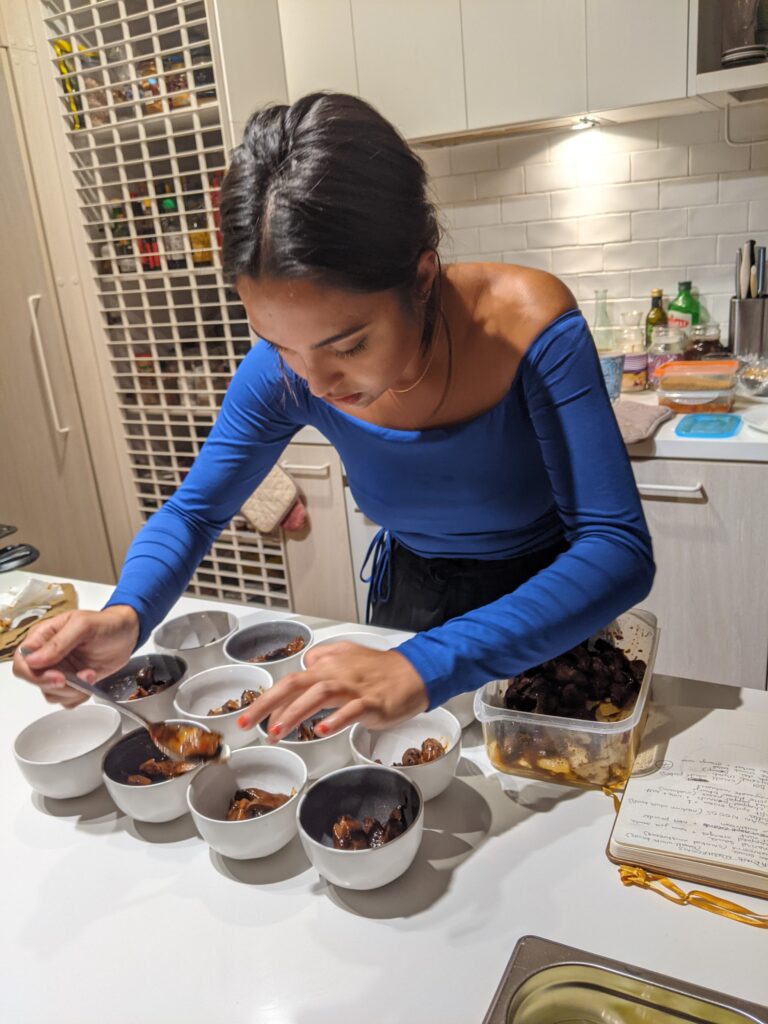
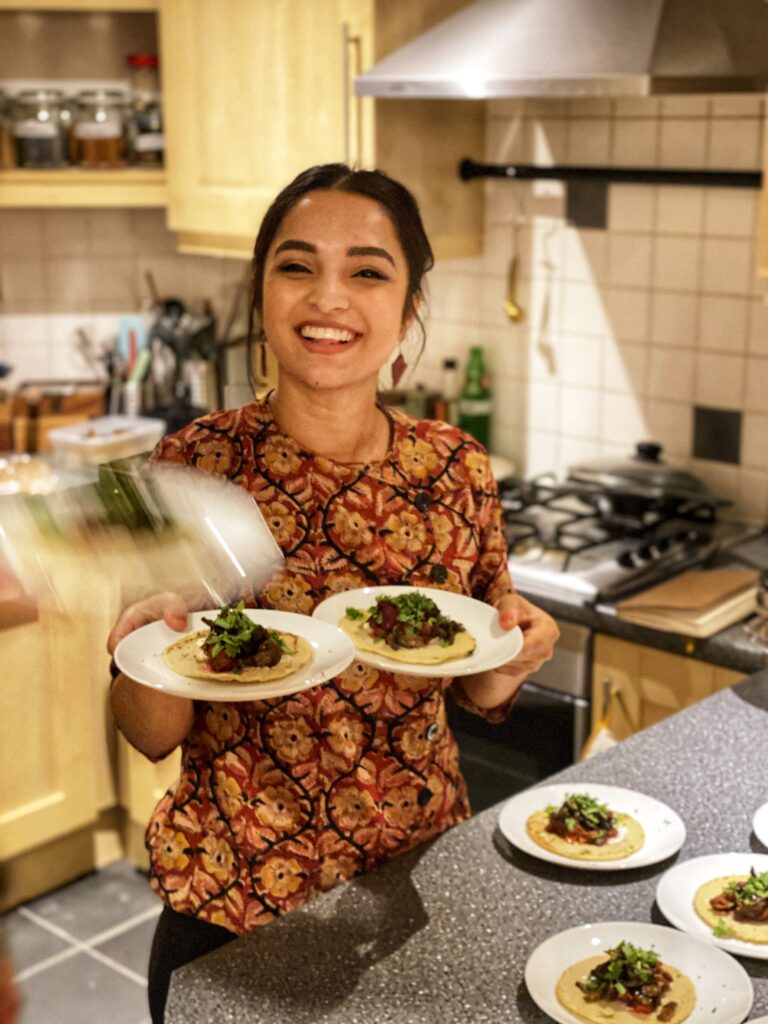
Baboy Club, London
Maria Garbutt-Lucero started Baboy Club in 2018 as a way to stay connected to her Filipino heritage and childhood in Manila. A cuisine full of salty, sweet and sour flavours, Maria wants to share the flavours that bring her joy – from the freshness of green papaya to the punchy, sharp notes in sinigang soup. For Maria, eating together is a ritual of joy and manifestation of history on a plate. Maria incorporates Filipino history – an island linked by its shipping trade routes to Spain, China and South America – into the food she dishes up.
Next date: 6 Feb
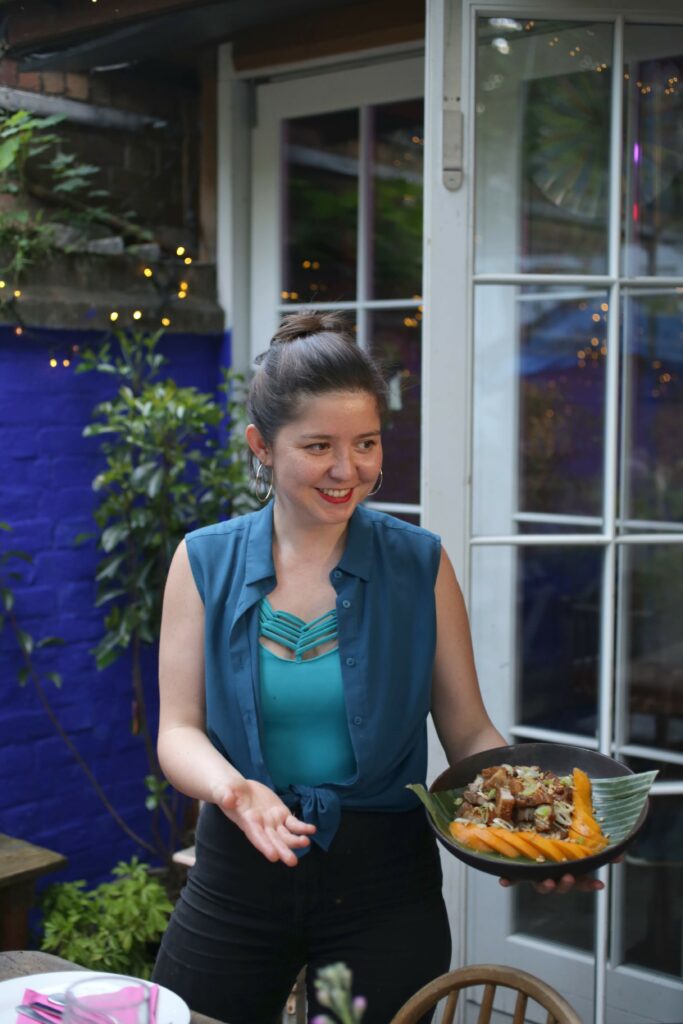
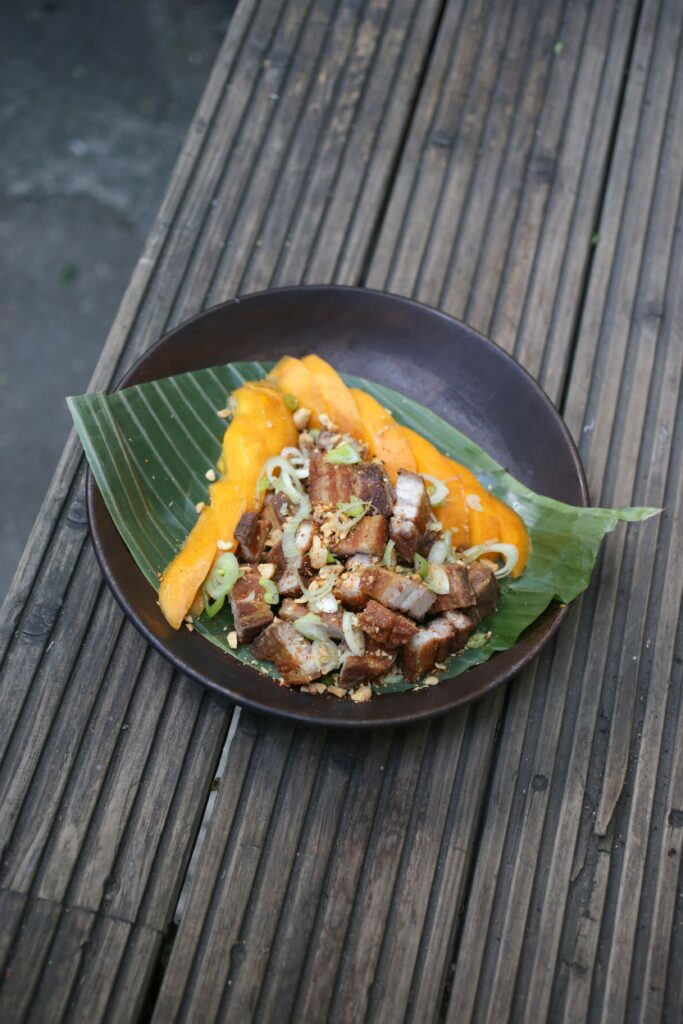
Kina Mama, London
Meaning ‘the mothers’ in Swahili, the East African supper club Kina Mama was founded by Munira Mahmud and is run by a collective of women who are aiming to fundraise and provide food services for mothers and anyone who needs support in the community. Rooted in East African cooking, the supper club is a fusion of traditional and modern tastes, with influences from Arabic and Indian cooking. “I cook according to my feelings and the seasons. I like to see what ingredients we could add to traditional dishes,” says Munira.
Next date: TBC
Empress Market, London
For Numra Siddiqui, supper clubs are a journey through history, where food acts as the point of connection between different eras and cultures. Each themed supper club takes you through a story – her ‘Grand Trunk Road’ supper club presents a six-course menu that travels across the ancient trade route through Kabul, Afghanistan, to northern Pakistan, ending in Kolkata, India. Numra hopes to showcase the similarities between different regions and how migration and trade influenced the cuisines. She also hopes to initiate a conversation around colonisation, looking at how the Grand Trunk Road became a site of violence and displacement after partition. Supper clubs are interwoven with poetry reading and talks – at a previous supper club, Numra’s mother Salma read excerpts from her book The Migrants, detailing her family’s journey from India to Pakistan during partition and the challenges and tragedies they met along the way. Exploring new ways of writing history through food, Numra is currently travelling and developing new recipes for Empress Market supper clubs in March.
Next date: TBC
*This article was amended on 19 January to ensure the consistency of the spelling of Kolkata. A previous version included one instance that was spelled Calcutta.
The contribution of our members is crucial. Their support enables us to be proudly independent, challenge the whitewashed media landscape and most importantly, platform the work of marginalised communities. To continue this mission, we need to grow gal-dem to 6,000 members – and we can only do this with your support.
As a member you will enjoy exclusive access to our gal-dem Discord channel and Culture Club, live chats with our editors, skill shares, discounts, events, newsletters and more! Support our community and become a member today from as little as £4.99 a month.

